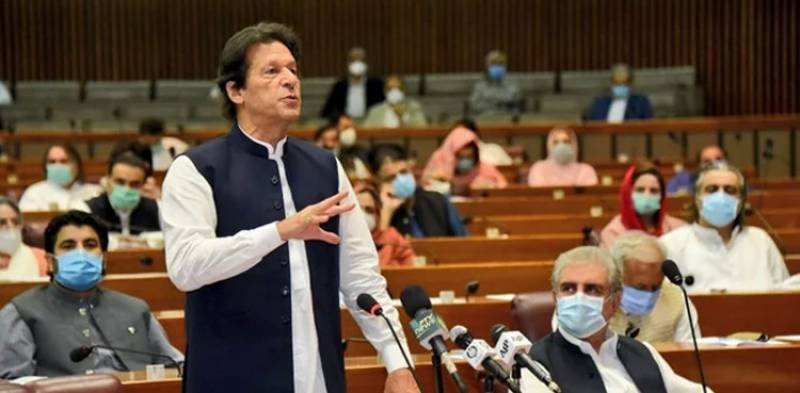ISLAMABAD: In the aftermath of the country’s poor performance on Transparency International’s Corruption Perception Index (CPI), Prime Minister Imran Khan defended his party’s anti-corruption drive on Tuesday, vowing to be more active in his push for the rapid resolution of pending corruption cases.
The ruling party’s rallying narrative – a core campaign promise of his party to restore a steady hand to governance, particularly on the subject of corruption – has taken a big hit as a result of the worldwide graft rating.
The news came as a boost to the opposition, which used the index’s score to slam Prime Minister Imran over his government’s “record-breaking” corruption.
The prime minister brought his cabinet into confidence over the “many steps” the ruling party has made to fight graft during its tenure, alarmed by the ranking and the anti-government narrative it helped establish.
While briefing the federal cabinet on various actions taken to combat corruption in the country, Prime Minister slammed political opponents, claiming that “those who committed wrongdoing were now staying abroad instead of facing corruption proceedings in Pakistan.”
The prime minister has previously chastised regimes over CPI rankings, accusing them of corruption and claiming that the nation was paying the price for rulers’ misconduct in the form of higher taxes. He has promised to abolish corruption within 90 days of taking office.
Ironically, PM Imran had to enlist the aid of people whom he had previously referred to as the country’s top “thieves” in order to establish the government in 2018. For a long time, Imran Khan has emphasised corruption as the country’s most serious problem, despite the fact that his own government has been plagued by corruption scandals in the last three and a half years, and Pakistan has fallen farther down the global watchdog’s perception list.
Federal Minister for Information and Broadcasting Chaudhry Fawad Hussain said in a post-cabinet news conference that Transparency International’s report did not cover financial corruption, and that the country’s CPI ranking was decreased owing to insufficient law enforcement and “state capture.”
The administration’s spokeswoman defended the government, saying that the full report is still pending and that the present score of 140 out of 180 is based on a number of factors, including financial corruption, accountability, rule of law, and state capture.
In a news conference, Pakistan’s information minister reiterated that the country had fallen farther down the index, not because of financial corruption, but because of weak rule of law and state capture. “There was no evidence of financial corruption in the study,” he stated.
The study was based on reports from numerous organisations and non-governmental organisations, according to the minister, who said that all of the institutions maintained Pakistan’s rating, with the exception of the Economist Intelligence Country Unit, which reduced the rankings. “Check who its Pakistani leader is, and you’ll see why the rating was decreased,” Fawad remarked.
The minister underlined that he did not want to enter into a debate over whether or not the article was accurate. Without a doubt, he stated, actions must be taken to improve the rule of law in Pakistan, as the Prime Minister has repeatedly stated.
“There is no doubt that more work needs to be done in the area of rule of law,” Fawad remarked, describing the disparities between the rich and the poor. He highlighted that all institutions must work together to establish the rule of law in letter and spirit, urging the court to play its part.
“The judiciary should consider it… “There is no wrong in presenting corruption trials,” Fawad remarked, adding that the administration was working on reforms in this area as well. His statement came after he reaffirmed the government’s plea to the country’s chief justices to place cameras inside courtrooms to live broadcast the Sharif and Zardari families’ trials.
Such efforts, he said, would improve Pakistan’s worldwide image, and he promised a comprehensive response once Transparency International’s full report was released.
